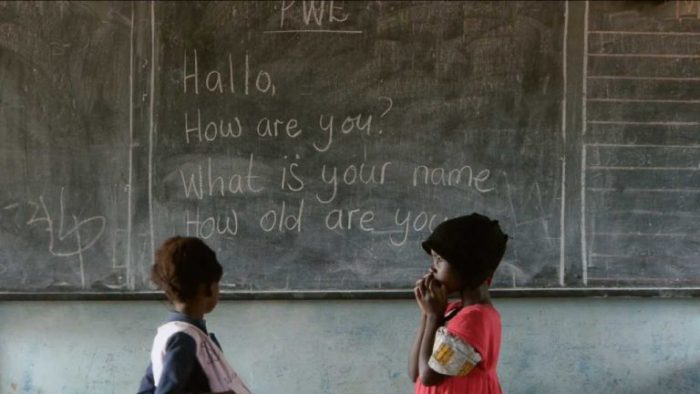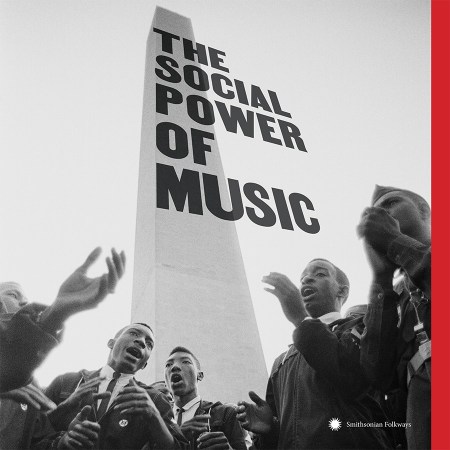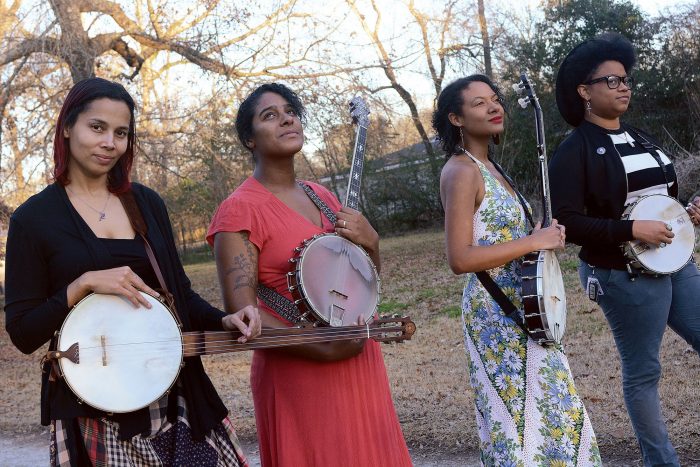ICYMI: Highlights from the week that was Feb. 17 – Feb, 23, 2019
No one can keep up with everything, so let us do it for you. We’ll gather the top Smithsonian stories from across the country and around the world each week so you’ll never be at a loss for conversation around the water cooler.
This week we listened to music, watched films and pondered the importance of image in telling unheard stories.

12 Of The Oldest Pictures From Black History In America
“We can nonetheless still learn something about people’s experiences and in a way recover a past that was too often ignored and misrepresented.”
BuzzFeed News, February 20

Tintype of a young woman with a child, circa 1865. (Courtesy Smithsonian National Museum of African American History and Culture)
Since its establishment in 2003, the National Museum of African American History and Culture has helped to preserve and recount the African American experience through its collection of more than 36,000 historical artifacts. In 2016, the museum opened the doors to its new Washington, DC, location, comprised of approximately 85,000 square feet across five floors of exhibition space.
At the center of these collections are Michèle Gates Moresi, who oversees the museum’s acquisitions and conservation efforts, and Laura Coyle, head of the museum’s digitalization programs. Together, Coyle and Moresi have co-edited a new book, titled Pictures With Purpose: Early Photographs From the National Museum of African American History and Culture, that dives deep into the museum’s archives to uncover many of the earliest pictures to document the African American experience. Read more from BuzzFeed News.
See Movies From Around The World At The Mother Tongue Film Festival
DCist, February 20

Still from “Colours of the Alphabet” via Smithsonian Institution
February has been full of cultural holidays, and there’s at least one more: The Smithsonian Institution is celebrating United Nations’ International Mother Language Day with a film festival.
The Smithsonian’s Recovering Voices initiative’s Mother Tongue Film Festival is bringing filmmakers from all over the world to D.C. to present film screenings, round table discussions, and panels. The four-day event’s schedule includes 23 films and audiovisual experiences from 34 countries in 62 languages, all centering on the importance of preserving the mother languages of the world. Read more from DCist.
Graded on a Curve: The Social Power of Music
On February 22, Smithsonian Folkways is releasing The Social Power of Music, a box set offering four compact discs totaling 83 songs augmented with a 124-page book. It’s safe to say there hasn’t been an enterprise (as one branch of an indispensable cultural institution) more dedicated to documenting the theme of this collection, but it’s not a self-congratulatory thing. The purpose here is to underline commonalities in past and present struggles, to illuminate the perseverance of the human spirit in resistance to injustice, and to simply highlight music’s potential for unity (and individuality, and diversity) through protest, systems of belief, and celebration.
The Vinyl District, February 19

There is simply too much worthiness included in The Social Power of Music to mention every entry or even half, but I’ll do my best to communicate the magnitude of this set’s ambitions; it spotlights music’s ability to encourage positive change politically and culturally, to unite individuals for a variety of purposes, and to inspire a sense of being grounded while navigating the vastness of the world.
The collection’s four discs are grouped into subthemes. the first is Songs of Struggle, with Sacred Sounds, Social Songs and Gatherings, and Global Movements following respectively. The selections present stylistic and topical variety, both as a whole and from inside these designated categories (of which there is some expected overlap) to foster a sense of the exhaustive without ever being exhausting. To the contrary, this is one of the easiest and most pleasurable uninterrupted four-disc dives I can remember making. As I’ve taken the full plunge a few more times, so it has remained.Read more from the Vinyl District.
Nonprofits Grow Uneasy With Philanthropy Tainted by Opioid Proceeds
Columbia University reviews its philanthropic relationship with Purdue Pharma’s Sackler Family
The Wall Street Journal, February 20
Two prominent institutions, the New York Academy of Sciences and Columbia University, are joining the list of universities, museums and nonprofits currently reviewing their philanthropic relationship with members of the Sackler family, owners of pain-pill maker Purdue Pharma. Read the story from the Wall Street Journal: Nonprofits Grow Uneasy With Philanthropy Tainted by Opioid Proceeds – WSJ
How Our Native Daughters Reimagine Folk Song Narratives
Collaborative project featuring Rhiannon Giddens, Allison Russell, Leyla McCalla and Amythyst Kiah unearths forgotten stories
Rolling Stone, February 21

Rhiannon Giddens, Leyla McCalla, Allison Russell and Amythyst Kiah discuss their collaborative project Our Native Daughters.
Courtesy of Smithsonian Folkways
As she tends to do, Rhiannon Giddens had an idea. The singer-banjoist and MacArthur Genuis had convened a group of fellow artists — Allison Russell, Leyla McCalla and Amythyst Kiah —in January 2018 to record the collaborative concept album Songs of Our Native Daughters to interpret and revive long-extinct forms of music.
“Maybe,” she pondered out loud to Kiah and Russell one day, “you could reimagine the John Henry story. Why don’t you two write a song about Polly Ann, because nobody knows Polly Ann’s story. What’s her story?” Read more from Rolling Stone.
Posted: 27 February 2019






